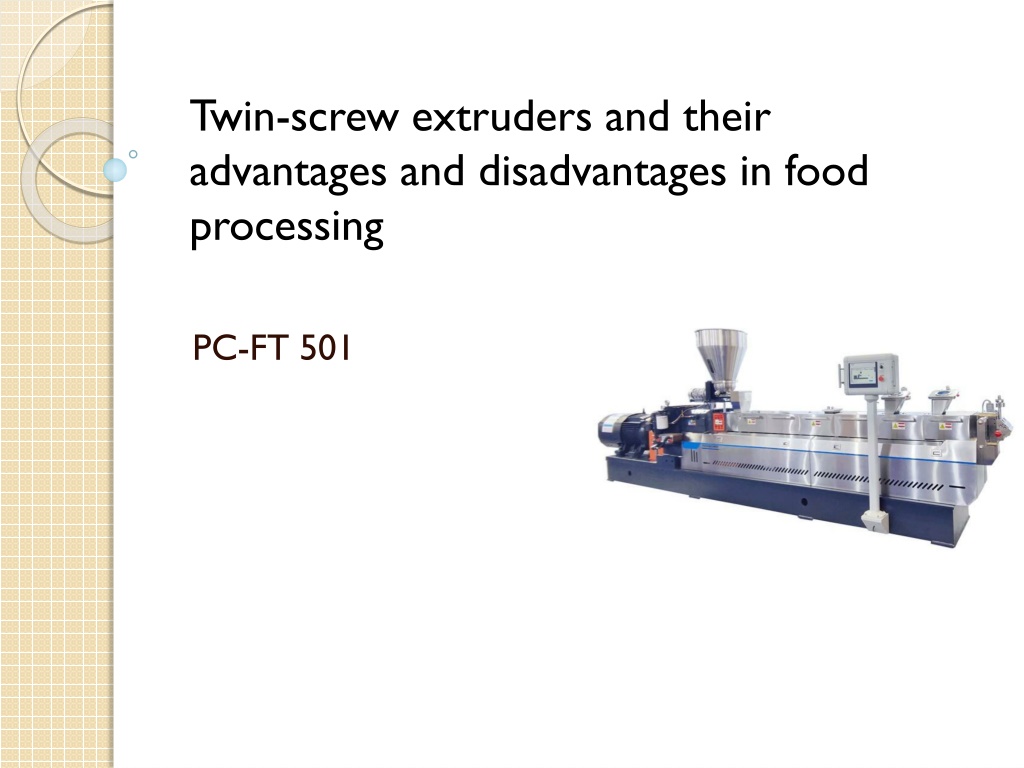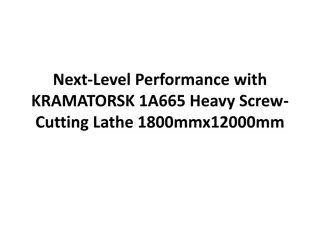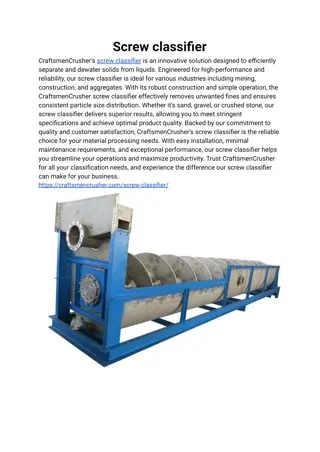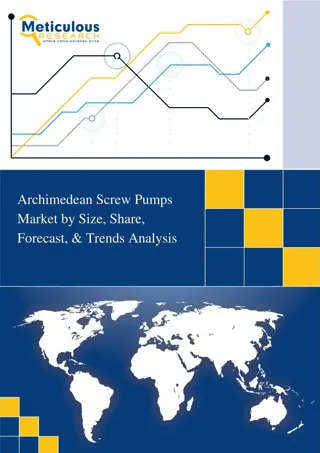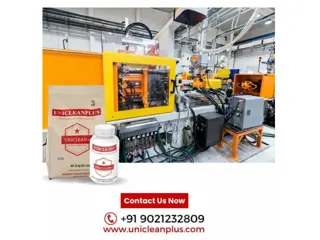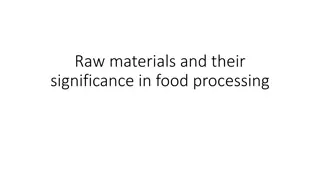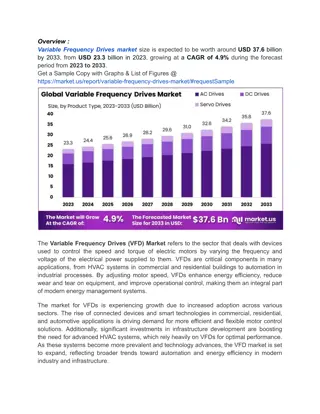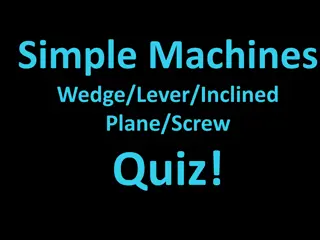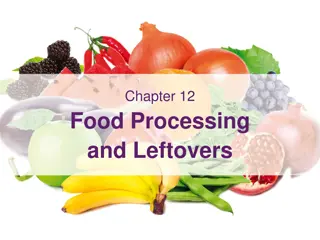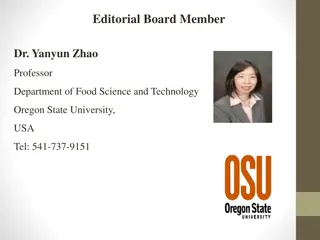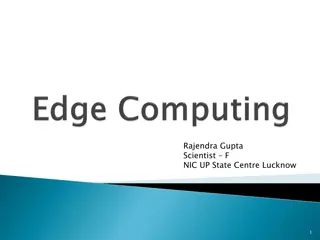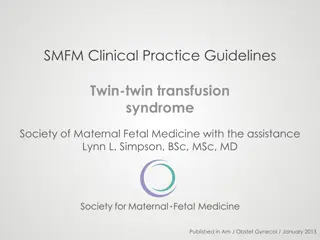Understanding Twin-Screw Extruders in Food Processing
Twin-screw extruders are versatile machines with advantages like better pumping efficiency, efficient mixing, and handling of high-moisture materials. They offer flexibility in processing a wide range of raw materials, leading to a significant expansion in the application of extrusion in food processing. These machines operate continuously with short residence times, providing uniform mixing capabilities and self-cleaning features.
Download Presentation

Please find below an Image/Link to download the presentation.
The content on the website is provided AS IS for your information and personal use only. It may not be sold, licensed, or shared on other websites without obtaining consent from the author. Download presentation by click this link. If you encounter any issues during the download, it is possible that the publisher has removed the file from their server.
E N D
Presentation Transcript
Twin-screw extruders and their advantages and disadvantages in food processing PC-FT 501
Twin-screw extruders The twin-screw extruder is a machine consisting of two co-penetrating and self-cleaning identical screws which are mounted on shafts and rotate in the same direction in a fixed closed housing called barrel . The twin-screw extruders operate continuously with very short residence times. We offer a wide range of twin-screw extruders with different characteristics depending on the industrial application and the degree of sophistication required. These machines are the heart of our continuous production lines for food & feed, cellulose pulp, plastics compounds, chemical compounds and energetic materials.
Twin-screw extruders, working principle Twin-screw extruders consist of two intermeshing, co-rotating screws mounted on splined shafts in a closed barrel. Due to a wide range of screw and barrel designs, various screw profiles and process functions can be set up according to process requirements. Hence, a twin screw extruder is able to ensure transporting, compressing, mixing, cooking, shearing, heating, cooling, pumping, shaping, etc. with high level of flexibility. The major advantage of intermeshing co-rotating twin screw extruders is their remarkable mixing capability which confers exceptional characteristics to extruded products and adds significant value to processing units. In twin screw extrusion processing, the raw materials may be solids (powders, granulates, flours), liquids, slurries, and possibly gases. Extruded products are plastics compounds, chemically modified polymers, textured food and feed products, cellulose pulps, etc
Twin-screw extruders are mainly of two types as follows: Co-rotating twin-screw extruders Non-intermeshed, co-rotating Intermeshed, co-rotating Counter-rotating twin- screw extruder Non-intermeshed, counter rotating Intermeshed, counter rotating
Twin-screw extruders advantages in food processing : Pumping efficiency is better and less dependent on the flow properties of the material Mixing is more efficient. Heat exchange rate from barrel surface to the material is faster and more uniform. Residence time is more uniformly distributed. Thanks to the possibility of flexible modular configuration of the screw and the barrel, the twin-screw extruder is a more versatile machine. High moisture and sticky materials can be handled. This is probably, the most important advantage because it enables processing of materials that could not be handled hitherto by single-screw extruders. The introduction of twin-screw technology has resulted in a most significant expansion of the application of extrusion to foods and the spectrum of extruded products. VIII. Self-wiping reduces the risk of residue buildup. Feeding problems with cohesive materials are less serious. High level of process flexibility. Better control of process parameters. XII. Higher process productivity. XIII. Higher business potential. I. II. III. IV. V. VI. VII. IX. X. XI.
Twin-screw extruders disadvantages in food processing: Higher cost: Both the capital expenditure and the operation cost are higher. Complexity: The twin-screw extruder is mechanically more complex and less robust. Consequently, the machine is more sensitive to mechanical abuse (such as high torque).
